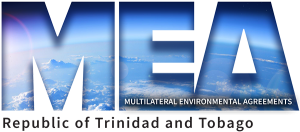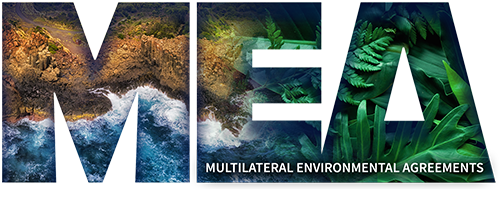
Ozone
Ozone Layer Protection Homepage
Vienna Convention for the Protection of the Ozone Layer and its Montreal Protocol on Substances that Deplete the Ozone Layer
What is the issue?
During the 1970s, there were concerns that the Earth’s stratospheric ozone layer could be at risk from chlorofluorocarbons (CFCs) and other anthropogenic (man-made) substances. Scientists warned that substances in the atmosphere could deplete the ozone layer, hindering its ability to prevent harmful ultraviolet rays (UV-B) from reaching the Earth. This would adversely affect ocean ecosystems, agricultural productivity and animal populations, and harm humans through higher rates of skin cancers, cataracts and weakened immune systems.
How is it being addressed?
The Vienna Convention for the Protection of the Ozone Layer is an international treaty that acts as a framework for the international efforts to protect the ozone layer. The Convention encourages States to cooperate in relevant research and scientific assessments of the ozone problem, to exchange information, and to adopt “appropriate measures” to prevent activities that harm the ozone layer. However, it does not include legally binding reduction goals for the use of CFCs, the main chemical agents causing ozone depletion. These are laid out in the accompanying Montreal Protocol.
The Montreal Protocol on Substances that Deplete the Ozone Layer is an international treaty designed to protect the ozone layer by phasing out the production of numerous substances believed to be responsible for ozone depletion. It is believed that if the international agreement is adhered to, the ozone layer is expected to recover in the foreseeable future. The Montreal Protocol is recognized as the most successful MEA for protecting the global environment and has become a model for various multilateral environmental agreements. In August 1989, Trinidad and Tobago acceded to the Vienna Convention and the Montreal Protocol. Trinidad and Tobago has signed all amendments to the Montreal Protocol including the latest known as the Kigali Amendment in November 2017. This Amendment addresses the phase-down of hydrofluorocarbons (HFCs) which was used as a refrigerant alternative and though it does not deplete the ozone layer, they are powerful greenhouse gases and, thus, contributors to climate change.
In accordance with the Protocol, Trinidad and Tobago is obligated to:
Implement a Phase out Schedule for Ozone Depleting Substances (ODSs), with the 97.5% phase out of Hydrochlorofluorocarbons (HCFCs) by 2028 and complete phase out by 2040
Commence a phase down of hydrofluorocarbons from 2024.
Trinidad and Tobago has completed phase out of Chlorofluorocarbons (CFCs) and Halons on January 1st 2008 and the phase out of Methyl Bromide for non quarantine and pre shipment as at January 1st 2015. In September 1996, the Government of the Republic of Trinidad and Tobago approved the Country Programme for the Phase out of ODS. The Government has also approved a National Cooling Strategy for Trinidad and Tobago in 2020. Several projects have been undertaken thus far including:
- Institutional strengthening of stakeholder capacities to manage the phase out process of ODS, ODS containing substances and ODS equipment;
- Implementation of a Refrigeration Management Plan aimed at the recovery and recycling of CFC refrigerant
- Implementation of the Terminal Management Phase-Out Plan for the accelerated phase out of the remaining consumption of CFCs in Trinidad and Tobago
- Implementation of an HCFC Phase out Management Plan
- Implementation of a CFC-aerosol conversion project with Hands Arnold Company
- Implementation of conversion projects for HCFC based foam manufacturers
- Training of air-conditioning and refrigeration technicians in good refrigeration practices and use of alternative refrigerant
- Training of border control officers in the monitoring and controlling of ODS and substances containing ODS
- Implementation of a Trinidad and Tobago Halon Plan Management Project for the Management of a National Inventory on Halons and for the phasing out of Halons
- Development of National Guidelines for the Refrigeration and Air Conditioning Sector
- Development of Standards that address Labelling of Refrigerant Cylinders and Labelling of Refrigeration and Air Conditioning Equipment
- Implementation of a project funded by the Global Environment Facility to promote energy efficiency in the refrigeration and air conditioning sector
What needs to be done locally?
Trinidad and Tobago needs to continue:
- Training and capacity building of air-conditioning and refrigeration technicians and the refrigeration and air conditioning sector;
- Close monitoring of imports and exports of all ozone depleting substances;
- Encouraging the use of energy efficiency ozone and climate friendly technologies and alternative refrigerant;
- Development of a robust legal framework for monitoring ozone depleting substance;
- Public Education and sector awareness of ozone friendly practices
For further information please visit: https://ozone.unep.org
